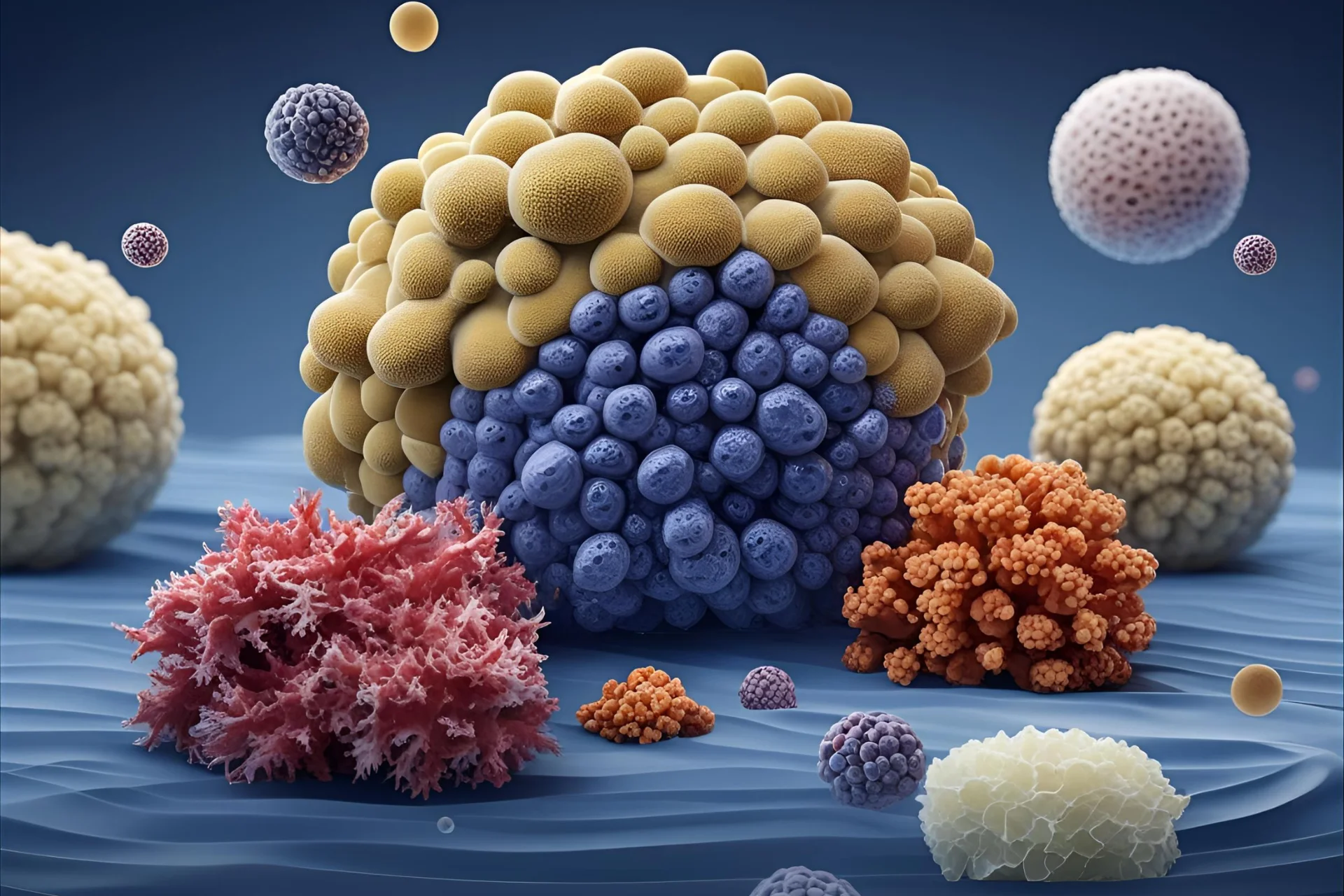Leading Mesenchymal Stem Cell Companies Advancing Regenerative Medicine
The global spotlight on mesenchymal stem cell (MSC) therapy has grown rapidly in recent years, driven by the increasing need for regenerative solutions in orthopedics, neurology, cardiology, and immune-related conditions. As more clinical evidence supports the safety and versatility of MSCs, demand has surged for innovative applications in both autologous and allogeneic treatments.
In response, a new wave of MSC biotech companies and regenerative medicine startups has emerged, focused on developing scalable, clinically validated, and regulatory-compliant therapies. These stem cell therapy firms are now at the forefront of regenerative medicine, launching advanced clinical trials, securing fast-track designations, and even exploring cell-free exosome-based therapeutics.
This momentum not only highlights the therapeutic potential of MSCs but also signals a shift toward corporate-led innovation in cell-based therapy bridging the gap between lab discovery and real-world treatment.

Top 7 Mesenchymal Stem Cell Companies to Watch in 2025
While the science behind mesenchymal stem cells (MSCs) continues to evolve, a select group of companies is translating that potential into real-world therapies. These firms stand out not just for their innovation but for their clinical focus, regulatory progress, and global influence in specific therapeutic areas. Here are three standout companies leading the field in 2025:

Mesoblast
A global leader in allogeneic MSC-based therapies, Mesoblast is best known for its work in treating chronic low back pain and advanced heart failure. Their flagship product, Rexlemestrocel-L, has shown promising results in late-stage clinical trials, and the company continues to expand its reach across inflammatory and degenerative conditions. With a strong presence in the U.S. and international markets, Mesoblast is shaping the future of large-scale MSC deployment in real-world medicine.
Athersys
Athersys has developed the MultiStem® platform, an off-the-shelf, adult stem cell product similar to mesenchymal stem cells designed to treat stroke, ARDS, and sepsis. Backed by public funding and strong research partnerships, the company has positioned itself as a front-runner in scalable, emergency-use cell therapies. Their unique approach addresses both neurological and immune-based conditions through robust MSC clinical trials.
Fate Therapeutics
Combining stem cell science with genetic engineering, Fate Therapeutics is pioneering CRISPR-edited MSCs to enhance immune modulation and treatment specificity. Their cell platforms are being explored for cancer immunotherapies and autoimmune diseases, placing them at the intersection of cell therapy and precision medicine. Fate’s technology is a prime example of how stem cell medical companies are evolving into next-generation therapeutic developers.
Celltex Therapeutics
A pioneer in personalized autologous MSC therapy, Celltex specializes in isolating, expanding, and banking a patient’s own mesenchymal stem cells for therapeutic use. Their cGMP-compliant labs allow for large-scale expansion, primarily targeting autoimmune conditions, orthopedic issues, and anti-aging applications. With a strong focus on safety, personalization, and patient accessibility, Celltex has positioned itself as a leader in patient-specific stem cell medicine.
BrainStorm Cell Therapeutics
BrainStorm’s flagship technology, NurOwn®, utilizes MSC-NTF cells, mesenchymal stem cells engineered to secrete neurotrophic factors for the treatment of neurodegenerative diseases like ALS and multiple sclerosis. Their pipeline includes multiple ongoing MSC clinical trials, and the company has received FDA Fast Track designation. BrainStorm’s work bridges the gap between regenerative neurology and real-world clinical application.
ExoCoBio
One of the top companies in the exosome-based therapy field, ExoCoBio develops MSC-derived exosome products for both dermatological and medical use. Their offerings target inflammation, wound healing, and skin rejuvenation, making them a leader in cell-free regenerative therapies. With a robust R&D division and strong market penetration in Asia, ExoCoBio is pushing the frontier of MSC exosome commercialization.
Pluristem Therapeutics
Pluristem focuses on placenta-derived MSCs, offering scalable, off-the-shelf therapies for conditions such as muscle injuries, inflammation, and radiation exposure. Their proprietary PLX (Placental eXpanded) cell platform is currently being evaluated in multiple global clinical trials. The company’s strength lies in its manufacturing innovation, using 3D bioreactors to produce high-quality MSCs on a large scale, a major asset for future cell therapy commercialization.

What Makes Mesenchymal Stem Cell Companies Unique?
What sets mesenchymal stem cell companies apart in the biotech landscape is the clinical versatility of MSCs themselves. As multipotent stem cells, MSCs have the ability to differentiate into various cell types such as bone, cartilage, and fat making them suitable for a wide range of medical applications.
Leading cell therapy companies are exploring MSC-based treatments for orthopedic injuries, autoimmune conditions, neurodegenerative diseases, and even cardiovascular disorders. This broad therapeutic potential allows MSC developers to build diverse pipelines targeting multiple indications simultaneously.
Another unique factor is the growing strategic divide between autologous and allogeneic MSC models. Autologous therapies use the patient’s own cells ensuring minimal immune rejection. Many allogeneic MSC developers are shifting toward scalable, off-the-shelf products that offer faster treatment delivery and broader commercial reach.
Additionally, the ability to engineer or enhance MSC-derived products, such as exosomes or gene-edited cells, adds a new layer of innovation that distinguishes these companies from traditional biologics or pharmaceutical firms. In essence, their uniqueness lies in their ability to combine regenerative potential with manufacturing scalability and scientific innovation.
Emerging Startups and Global Innovation in MSC Therapies
The field of mesenchymal stem cell (MSC) therapy is not only driven by established players, it’s also rapidly evolving thanks to a wave of emerging biotech startups and international innovation hubs. These newer firms are redefining how MSCs are developed, delivered, and commercialized.
A major area of momentum lies in MSC-derived exosome therapies, where startups are racing to develop cell-free regenerative solutions. These next-generation products aim to harness the paracrine benefits of MSCs without the complexity of transplanting live cells. It opens the door to broader clinical use and reduced regulatory burden.
Globally, Asian markets such as South Korea, Japan, and China are leading in innovation. These regions often benefit from faster regulatory approval pathways, robust government funding, and high patient demand for regenerative therapies. Companies based in these countries are actively launching MSC R&D platforms that focus on dermatology, wound healing, and autoimmune diseases.
Another driving force behind global MSC innovation is the collaboration between research institutions and GMP-certified stem cell manufacturers. These partnerships enable rapid MSC expansion, enhanced quality control, and scalable clinical-grade production especially crucial for trials and commercial distribution.


Manufacturing, Scaling, and GMP Production of MSCs
As mesenchymal stem cell (MSC) therapies move from the lab to clinical and commercial applications, the role of GMP-compliant manufacturing becomes critical. Ensuring quality, safety, and consistency during MSC expansion is essential for meeting regulatory requirements and delivering effective treatments.
GMP (Good Manufacturing Practice) standards govern every step of MSC production from cell sourcing and culture media to storage and delivery. Without strict adherence to these protocols, even the most promising therapies risk contamination, variability, or regulatory rejection.
Several companies are leading innovation in scalable MSC production. For example:
Together, these companies enable stem cell therapy firms to produce large quantities of therapeutic-grade MSCs supporting everything from early-phase clinical trials to global commercialization.
Ultimately, the shift toward industrialized stem cell platforms is what will make MSC-based therapies accessible, affordable, and scalable paving the way for their integration into mainstream medicine.
Role of MSC Companies in Exosome-Based Therapies
Many MSC companies are now focusing on exosome-based therapies, a form of cell-free treatment that uses tiny vesicles secreted by MSCs to promote healing. These MSC-derived exosomes carry bioactive signals that mimic stem cell effects but are safer and easier to store and transport.
Key advantages:
Leading firms in this space include:
Investment, Partnerships, and Market Outlook
The mesenchymal stem cell (MSC) sector is attracting major investment, driven by promising clinical trial outcomes and expanding therapeutic potential. Funding for MSC-related clinical trials continues to rise, with several biotech firms pursuing IPOs or securing Series A–C rounds to scale operations.
Strategic partnerships with big pharma companies and research universities are accelerating drug development, enhancing MSC manufacturing, and expanding regulatory access across global markets.
According to industry forecasts, the MSC-based therapeutics market is projected to surpass $10 billion by 2030, fueled by advances in exosome therapy, allogeneic cell platforms, and personalized regenerative care.
These trends reflect growing confidence in stem cell market growth, robust regenerative medicine investment, and the commercial viability of scalable MSC therapy solutions.